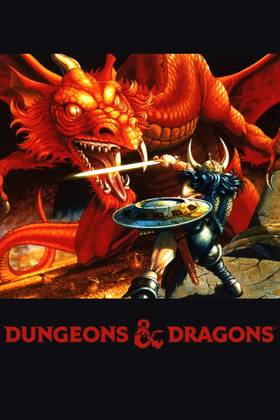
- Created by
-
E. Gary Gygax, Dave Arneson
- Movie
-
Dungeons & Dragons: Honor Among Thieves
- Creation Year
-
1974
With all the buzz around how video games are getting more expensive, players are looking for options that fit into a tight budget. There’s no better price than free, and for those who appreciate the RPG genre, the Dungeons & Dragons franchise has a few decent choices available on ![]() Steam that will cost the player nothing but time.
Steam that will cost the player nothing but time.
Most of these games are standalone, but there are online options, and some of them are DLCs that require buying another game first. They take place in a variety of locations in the D&D universe, including places like the Sword Coast and the Underdark, and often include famous heroes from other D&D-based games.
Dungeons & Dragons Online was originally released in 2006, and the free-to-play model has been available since 2009 with the launch of the Eberron Unlimited expansion. There’s some trending news regarding the introduction of new 64-bit servers to the game this year, along with new settings from the TTRPG lore, like Ravenloft and Lamordia.
The game currently allows the player to start building their character with a choice of 8 classes and uses D&D 4th edition rules, which include extra perks like action points and quests that the player can do more than once for reputation or extra rewards. These features are common in MMOs, which often feature special rewards for grinding reputation or repeatable daily quests.
Neverwinter Nights is a darker and grittier version of a D&D game that was released when fans were still looking for a game to fill the void after the first two games of the Baldur’s Gate era. The long and complex storyline is similar to the novel Gauntlgrym, the first book in the Neverwinter Saga, and tells the story of how the city’s leadership devolved into chaos when the Lord of Neverwinter mysteriously disappeared.
The player’s main goals are defending themselves and the locals from the undead attacking the city, and uncovering the mystery of the Sect Crown of Neverwinter while doing it. The setting is also based on the novel trilogy and features the same villains and heroes, like the Lich Queen Valindra and Drizzt Do’Urden.
The whole Idle Champions series is about crossovers and famous names, and this is the D&D version of what’s also referred to as an “incremental” game. It doesn’t use D&D rules about leveling, fighting, or progression. Instead, the player gets to choose from a roster of famous “Champions” from various stories in the D&D universe and use their various skills in certain fights, scenarios, and adventures.
Several of the settings will be familiar too, like Barovia from Ravenloft: Curse of Strahd and the dangerous ruins in Tales from Candlekeep: Tomb of Annihilation. It’s designed and intended for those players who are already fans of the franchise and want to experience the thrill of playing famous characters like Karlach, Minsc, and Drizzt Do’Urden.
Dragonheir: Silent Gods is an RPG with an underlying backstory combined with the freedom of an open world, which is similar to how the TTRPGs are organized. It’s a fantasy-based RPG that frequently collaborates with Dungeons & Dragons, the most recent featuring the famous ranger Drizzt Do’Urden along with his legendary gear and weapons.
Players build teams of characters using in-game currency earned by fighting certain monsters or completing quests specific to their chosen hero. Even without advertising a connection between the two games, Dragonheir uses rules that also include dice rolls and vertical character progression.
Short, sweet, and completely free of charge, Oceanum Mortis is an adventure game based on the classic versions of Baldur’s Gate from the 1990s. It follows the same top-down isometric design, but is based on the storyline primarily, and has very little combat. It’s a familiar medieval fantasy setting that recalls locations like Candlekeep.
The player can have up to four characters in their party at once, which is more like the way Baldur’s Gate 3 is organized. With an average finishing time of about 3 hours, it’s a nice way for a fan of D&D games to spend an afternoon.
The original Pool of Radiance was released in 1988, which isn’t a surprise given the primitive but deeply nostalgic graphics. It was the first adaptation of D&D to home computers, starting a trend that never stopped, making it an essential addition to a D&D fan’s gaming library.
Players build their characters and can have up to 6 in their party at once, with the usual D&D progression based on ability scores, gear selection, and using certain skills. The same version of the game is available for free, provided the player already has the Forgotten Realms: The Archive – Collection Two, which is also available on Steam.

E. Gary Gygax, Dave Arneson
Dungeons & Dragons: Honor Among Thieves
1974